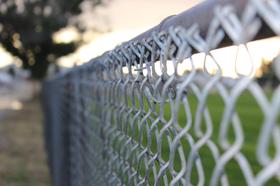Top Rankings
Hawthorne-Cedar Knolls Union Free School District ranks among the top 20% of public school district in New York for:
Category
Attribute
Diversity
Most diverse schools (Top 1%)
Student Attention
Lowest student-teacher ratio (Top 1%)
For the 2025-26 school year, there are 2 public schools serving 114 students in Hawthorne-Cedar Knolls Union Free School District.
51³Ô¹ÏÍøºÚÁÏ in Hawthorne-Cedar Knolls Union Free School District have a diversity score of 0.65, which is less than the New York public school average of 0.72.
Minority enrollment is 90% of the student body (majority Black), which is more than the New York public school average of 60% (majority Hispanic).
Overview
This School District
This State (NY)
# Schools
2 Schools
4,819 Schools
# Students
114 Students
2,508,712 Students
# Teachers
24 Teachers
217,359 Teachers
Student-Teacher Ratio
5:1
5:1
Student By Grade
District Rank
The school district's graduation rate of 50% has increased from 20% over five school years.
Math Test Scores (% Proficient)
(20-21)<50%
55%
Reading/Language Arts Test Scores (% Proficient)
(20-21)<50%
62%
Graduation Rate
(21-22)<50%
87%
Students by Ethnicity:
Diversity Score
0.65
0.72
% American Indian
1%
1%
% Asian
2%
10%
% Hispanic
38%
30%
% Black
44%
16%
% White
10%
40%
% Hawaiian
n/a
n/a
% Two or more races
5%
3%
All Ethnic Groups
District Revenue and Spending
The revenue/student of $131,965 is higher than the state median of $31,307. The school district revenue/student has grown by 63% over four school years.
The school district's spending/student of $145,070 is higher than the state median of $32,183. The school district spending/student has grown by 63% over four school years.
Total Revenue
$15 MM
$78,541 MM
Spending
$17 MM
$80,737 MM
Revenue / Student
$131,965
$31,307
Spending / Student
$145,070
$32,183
Best Hawthorne-Cedar Knolls Union Free School District 51³Ô¹ÏÍøºÚÁÏ (2025-26)
School
(Math and Reading Proficiency)
(Math and Reading Proficiency)
Location
Quick Facts
Rank: #11.
Cedar Knolls Academy
Special Education School
(Math: <50% | Reading: <50% )
Rank:
Rank:
5/
Bottom 50%10
226 Linda Ave
Hawthorne, NY 10532
(914) 749-2964
Hawthorne, NY 10532
(914) 749-2964
Gr: K-12 | 66 students Student-teacher ratio: 6:1 Minority enrollment: 89%
Rank: #22.
Linden Hill High School
Special Education School
(Math: ≤20% | Reading: ≤20% )
Rank:
Rank:
1/
Bottom 50%10
226 Linda Ave
Hawthorne, NY 10532
(914) 749-2977
Hawthorne, NY 10532
(914) 749-2977
Gr: 6-12 | 48 students Student-teacher ratio: 4:1 Minority enrollment: 92%
Frequently Asked Questions
How many schools belong to Hawthorne-Cedar Knolls Union Free School District?
Hawthorne-Cedar Knolls Union Free School District manages 2 public schools serving 114 students.
What is the racial composition of students in Hawthorne-Cedar Knolls Union Free School District?
44% of Hawthorne-Cedar Knolls Union Free School District students are Black, 38% of students are Hispanic, 10% of students are White, 5% of students are Two or more races, 2% of students are Asian, and 1% of students are American Indian.
What is the student/teacher ratio of Hawthorne-Cedar Knolls Union Free School District?
Hawthorne-Cedar Knolls Union Free School District has a student/teacher ratio of 5:1, which is lower than the New York state average of 11:1.
What is Hawthorne-Cedar Knolls Union Free School District's spending/student ratio?
The school district's spending/student of $145,070 is higher than the state median of $32,183. The school district spending/student has grown by 63% over four school years.
Recent Articles

School Choice vs. Neighborhood Schools: Key Factors
Explore school choice vs. neighborhood schools in 2025. Learn key factors parents should weigh when deciding the best fit for their child.

Best School Match 2025: Public vs Charter vs Magnet
Compare 2025 public, charter, and magnet school options with updated data, trends, and strategies to find the best fit.

Public School Boundaries and Equity in 2025
Explore how public school boundaries shape access, equity, and opportunity for students in 2025. Learn the impact on families and education policy.





